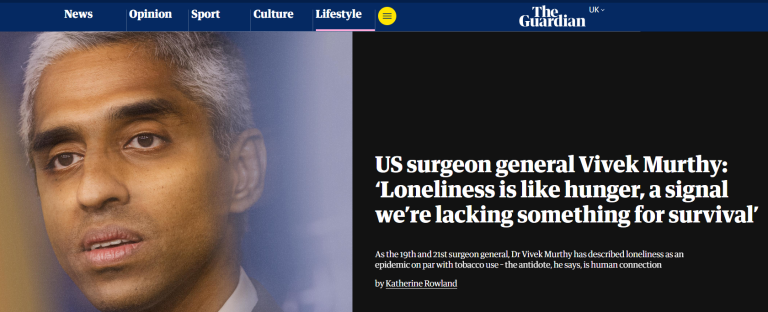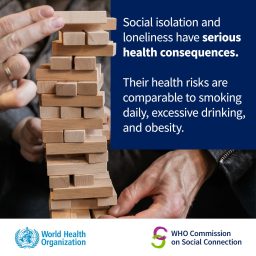Why are loneliness and social isolation important?
The epidemic of loneliness & isolation
One third of older adults report loneliness. Even more are socially isolated and at risk of loneliness [and its impacts]. Social connections play a vital role in promoting well-being, and the absence of these connections can lead to increased risks of depression, anxiety, and cognitive decline.
Loneliness is associated with various health problems, including cardiovascular disease and decreased immune function, while social isolation can exacerbate feelings of loneliness and hinder access to support systems.
Socially isolated and lonely older adults are often less physical active, leading to frailty and an increased risk of falls and injuries.
Addressing loneliness and social isolation is essential for enhancing the quality of life in older populations, promoting healthy ageing, and preventing the onset of long term conditions.
The costs of loneliness and social isolation are enormous. Much of this falls on the NHS, via long and costly hospital admissions. Lonely people often cease to live independently. By preventing loneliness then independent living can be preserved or extended.
We need your consent to load the translations
We use a third-party service to translate the website content that may collect data about your activity. Please review the details in the privacy policy and accept the service to view the translations.





